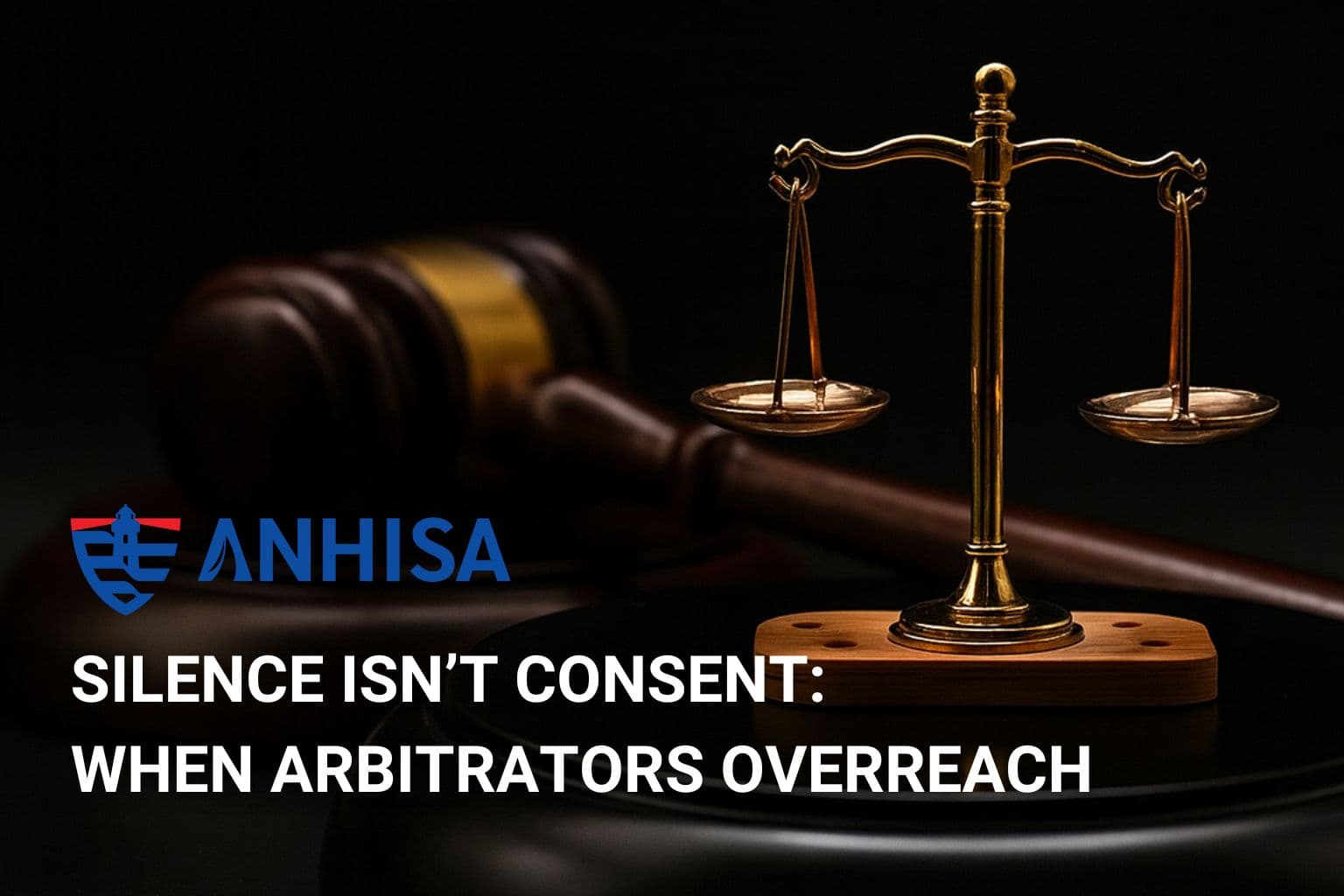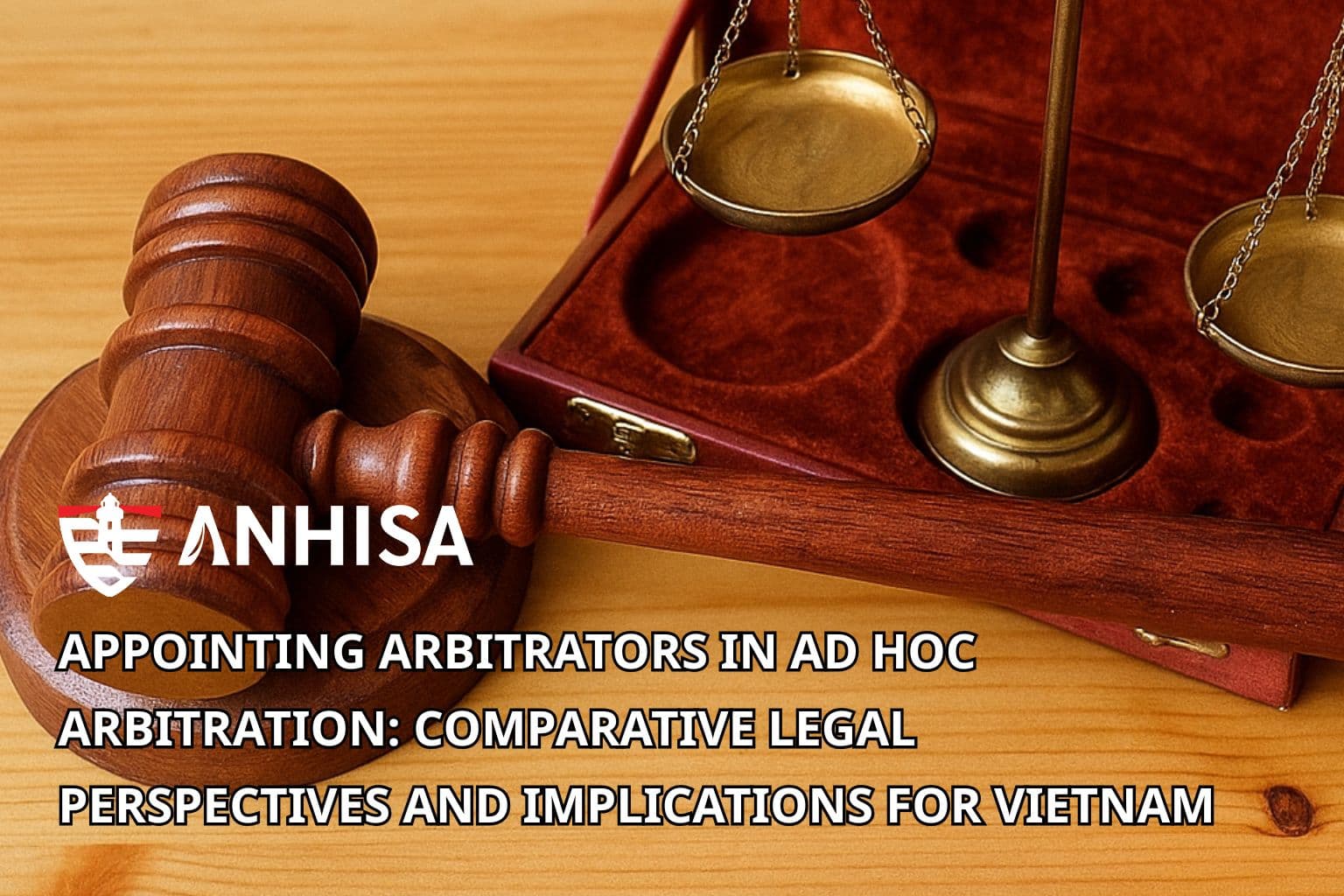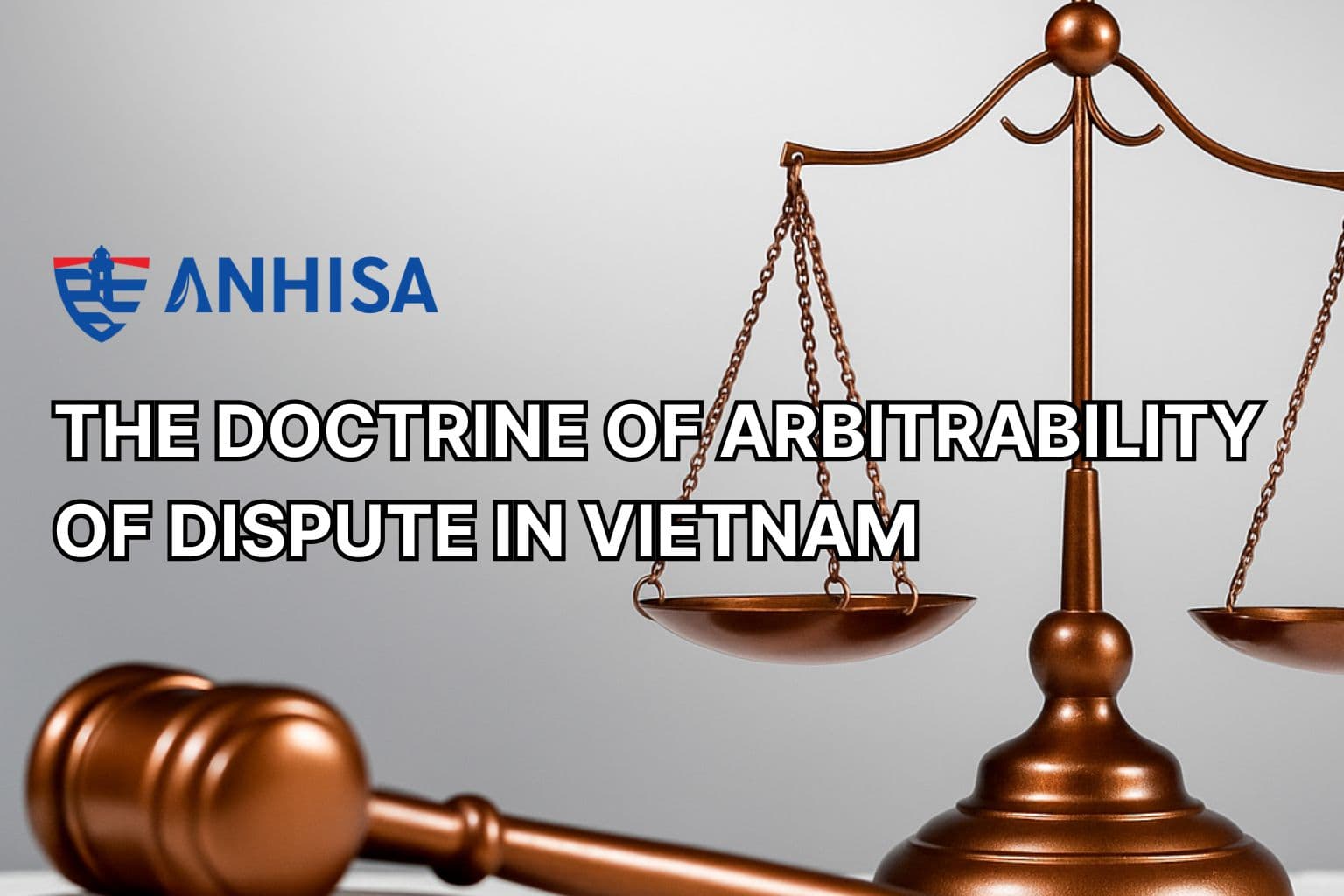THE DOCTRINE OF ARBITRABILITY OF DISPUTE IN VIETNAM
September 24, 2025
Foreword
The evolution of arbitration in decades has expanded the application of arbitration to various fields of law, reflecting the willingness of legislatures worldwide in favor of an alternative dispute resolution to the national court. Vietnam does not stand outside this trend, as the recent legislation reform introduces a significant legal framework for the expansion of arbitration as an alternative resolution to various disputes.
What does Arbitrability mean?
Arbitrability involves determining which types of disputes may be resolved by arbitration and which are under the exclusive jurisdiction of courts. If a dispute falls outside the scope of arbitrability, even if the arbitration agreement is valid, such dispute cannot be resolved by arbitration but can only come into the domain of the court. The reason for such distinction, is that the arbitrability doctrine rests on the notion that some matters so pervasively involve either “public” rights and concerns, or interests of third parties, that agreements to resolve such disputes by “private” arbitration should not be given effect[1].
The 1958 New York Convention permits the Contracting States to construe and apply the exception to range of disputes may be referred to arbitration through item (a) Clause 2, Article V, which stipulates that “Recognition and enforcement of an arbitral award may also be refused if the competent authority in the country where the recognition and enforcement is sought find that: […] The subject matter of the difference is not capable of settlement by arbitration under the law of that country.”
It is worth noting that even though the process of harmonisation of laws on arbitration is accelerated worldwide, there is no international consensus on what subject matter should be arbitrable or not. To determine whether a case can proceed to arbitration, states may consider their own interests and, in some instances, the public policy they aim to protect.
Along with the history of development of arbitration, courts and legislatures worldwide increasingly have an open mindset to the arbitrability of disputes, signifying through the expansion of the scope of disputes shall be resolved by arbitration. These institutions have held with increasingly clarity that “nonarbitrability” is just an exception to Article II of the New York Convention, which should be interpreted very narrowly. Several disputes, which are, in traditional impression of many, must be within the exclusive jurisdiction of courts as they may be largely concerned with the aspect of public policy, now in several pro-arbitration jurisdictions, can be referred to arbitration (e.g. labor disputes, antitrust, intellectual property, etc.).
Arbitrability under Vietnamese legislation and case law
Commercial activities
In Vietnam, there is a traditional narrow view on the jurisdiction of arbitration confined to commercial activities. This bias is further amplified by the fact that the law on arbitration is titled the Law on Commercial Arbitration. However, Article 2 of Vietnam’s 2014 Law on Commercial Arbitration (“LCA”) implicates its broader application to other disputes not arising from commercial activities. Specifically, the scope of disputes shall be resolved by arbitration as follows:
- The dispute arising from commercial activities;
- At least one party to the dispute is conducting commercial activities; or
- Other disputes as determined by the laws are to be settled by arbitration. The provisions of allowing a certain dispute to be resolved by arbitration can be found in other laws such as the 2015 Civil Code (Article 14), the 2015 Maritime Code (Article 338), the 2019 Law on Securities (Article 133), the 2014 Law on Construction (Article 146), the Law on Intellectual Property (Article 198), etc.
Therefore, if a dispute does not arise from commercial activities, which are defined as the profit-driven activities pursuant to Article 3.1 of the Commercial Law, such dispute may be resolved by arbitration in case it falls into the description of item (ii) or (iii) above. For example, consumer disputes can be resolved by arbitration since the Law on Protection of Consumer’s Rights allows arbitration[2], inter alia, as one of the dispute resolutions. Nonetheless, the dispute between two individuals, in relation to an interest-free loan agreement, shall fulfill none of the list above, and as a result, cannot be referred to arbitration.
It is important to note that the application of the above provisions is not straightforward. In practice, the Court has adopted a more cautious approach in interpreting the LCA regarding the arbitrability of disputes.

On the scope of “commercial activities”, in Decision No. 35/2025/QD-PQTT of the Court of Ho Chi Minh city, dated 26 February 2025[3], that the Court set aside an arbitral award based on the ground that the underlying dispute was non-arbitrable by virtue of the fact that it was of a civil and composing of non-commercial nature, is a notable example on the Vietnamese Court’s narrow interpretation of “commercial activities” as stipulated in Article 2 of the LCA above.
The case relates to the dispute between two individuals, a divorced couple, regarding the agreement on the distribution of commissions arising from the multi-level marketing contract. The agreement on distribution includes an arbitration clause, therefore, when dispute arose, the involved party referred the case to Vietnam International Arbitration Centre (“VIAC”). Even though during the arbitration proceedings, none of the parties objected to the jurisdiction of the arbitral tribunal, after the issuance of the award, the losing party filed a request to the Court for setting aside the arbitral award based on the ground that the dispute concerning the division of marital assets during the marriage, fell under the exclusive jurisdiction of the Court. The Court, in concurrence with the view of the petitioner (also the losing party in the arbitral proceedings), set aside the VIAC’s award.
Dispute over immovable property
In a decision rejecting the request for recognition and enforcement of a SIAC’s award, the High Court of Ha Noi clarified that the scope of dispute being capable of resolving by arbitration shall exclude the disputes falling under the exclusive jurisdiction of Vietnamese Court pursuant to the Civil Procedure Code 2015, which includes the civil dispute relating to rights over immovable property within the territory of Vietnam[4]. This Decision has opened relentless debate on the interpretation of the laws since the Court’s approach in interpreting the exclusive jurisdiction of Vietnamese Court provision extending to against the jurisdiction of arbitration. Furthermore, it also interprets the scope of dispute relating to rights over immovable property as too broad, including the disputes arising from irrelevant relations (i.e., share purchase agreement), but it falls into the scope of exclusive jurisdiction of the Court by virtue of the fact that the enforcement of the arbitral award affects the immovable property of the debtor.
On the former reasoning of the High Court of Ha Noi, in a Report of Institute of Judging Science of the Supreme People’s Court issued in 2014, this Insitute recognised the opinion that the exclusive jurisdiction provision of Vietnamese Court set forth in Civil Procedure Code shall not be applied against domestic arbitration, and arbitration shall have jurisdiction to resolve these type of dispute if the parties have arbitration agreement.
On the latter reasoning of the above Decision, it largely contrasts with a previous Decision issued by the Court of Ho Chi Minh City responding to a request to set aside an arbitration award[5]. In this Decision, the Court confirmed that only disputes over the issue who has the right to use the land, is non-arbitrable, and since the dispute arising from the project transfer contract, and both parties confirmed that the dispute was only relating to the rights and obligations pursuant to such contract, the Court rejected the request for setting aside the arbitral award due to non-arbitrability.
To address the ongoing debates about the arbitrability of disputes related to real property, the new Law on Land promulgated in 2024 explicitly allows the arbitration to handle land-related disputes arising from commercial activities. However, such jurisdiction has limitation as only Vietnamese arbitration can resolve such type of dispute. LCA gives no definition of Vietnamese arbitration. Based on the definition of foreign arbitration under LCA, Vietnamese arbitration can be interpreted as institutional arbitration or ad-hoc arbitration established under the Vietnamese laws. According to this approach, VIAC shall be understood to have jurisdiction to solve dispute relating to land use rights arising from commercial activities, while SIAC and other foreign arbitration centers shall not. This distinction arose from the long-term concern of Vietnamese legislature regarding land-use rights as a sensitive issue related to sovereignty of the state.
Labour disputes
Under the Labour Code 2019, dispute between employers and employees can be solved by labour arbitration. This type of arbitration is totally different from commercial arbitration under LCA. According to the Labour Code, the labour arbitral tribunal shall be established by the decision of the president of the Provincial People’s Committee. This tribunal is a permanent tribunal, which is not found on a case-by-case basis.
However, it is worthing note that regarding disputes over the non compete and non disclosure agreement (“NDA”) signed between the employer and employee, under the Case Law No. 69/2023/AL on 18 August 2023 promulgated by the Supreme Court, if an employee and an employer enter into a NDA to resolve the relevant matters arising after thetermination of the labor agreement, and chose to refer any dispute to arbitration, in this case, the Court shall determine that the dispute regarding the NDA is not a labour dispute and therefore, fall within the jurisdiction of commercial arbitration.
Insolvency and other types of disputes
In a draft of a Resolution of the Supreme People’s Court guiding certain provisions of the Civil Procedure Code on recognition and enforcement of foreign arbitral awards at first instance courts in 2019[6] (the “Draft Resolution”), the Supreme People’s Court continues clarifying the scope of disputes regarded as non-arbitrability, including, besides the disputes falling outside the scope of the list set forth in Article 2 of the LCA, the disputes regarding enterprise registration, intellectual property rights registration, insolvency, antitrust and competition claims.
The Draft Resolution well adapts to provisions of the Law on Insolvency, which has clearly stated that arbitration proceedings must be stayed after the Court accepts for resolving the petition for requesting to open the insolvency proceedings. And when the Court issues the Decision on opening the insolvency proceedings, all arbitration proceedings must be terminated, and the case files shall be transferred to the Court handling the insolvency for resolving.

However, the other categories of dispute listed in the Draft Resolution may be deemed to be significantly narrowed to the application of Article 2 of LCA. For example, pursuant to the Intellectual Property Law, all intellectual property disputes can be referred to arbitration, but under Draft Resolution, the dispute regarding the registration of intellectual property rights cannot.
Although the Draft Resolution has not yet been promulgated, what is of concern is that the lower courts may employ the Draft Resolution as a secondary source of authority in the interpretation of the Law on Commercial Arbitration, in consideration of the request for setting aside the arbitral award or the request for recognition and enforcement of the foreign arbitral award[7].
Recent trends
Since Vietnam is a developing country, which is in need of foreign investment and harbors the ambition of being a financial center in Southeast Asia to compete directly with Singapore or Hong Kong, the evolving social and economic landscape has brought a more open perspective to arbitration and a more open approach to the question of arbitrability. Recently, during the profound legislative reform and administrative reform, lawmakers have introduced several new provisions that demonstrate a pro-arbitration stance. The Resolution 66-NQ/TW dated 30 April 2025 of the Politburo of the Communist Party of Viet Nam provides a consolidated warranty for such change by listing one of the following as the main tasks for implementing its plan for innovating the legislation to meet the requirements of national development in the new era:
Quote
“[…] To build and perfect the legislation on the organisation and operation of the judicial authorities, the judicial support agencies in accordance with the objective and direction of the judicial reform. […] to ensure the procedure of recognition and enforcement of the arbitral award adapting to international standard and practice […] to develop the institution for alternative dispute resolution beside the courts as commercial arbitration, commercial mediation, etc.”
Unquote
A recent notable issuance of the Resolution No. 222/2025/QH15 on International Financial Centers in Vietnam on 27 June 2025 offers a whole new instrument to enshrine the principle of party autonomy when allowing the party to a dispute to agree to waive their right to request a court to annul an arbitration award. In this scenario, the authority to settle disputes through arbitration is placed solely in the hands of the arbitral tribunal. It is noted that such agreement shall apply only in case the dispute is resolved by the arbitral tribunal under the International Arbitration Centers in International Financial Centers[8]
Many jurisprudences, researchers, and legal practitioners in Vietnam are advocating for the expansion of arbitrability of disputes. As part of a campaign calling for the amendment of the existing Law on Commercial Arbitration, besides persuading the legislatures to structure the Law in accordance with the Model Law to adapt to international standards, the Vietnam Lawyers Association[9] proposes to rectify Article 2 of the LCA to further widen the scope of arbitrable disputes, embraces the negative-list approach, allows the parties to choose arbitration in a wide range of disputes except that the specific law explicitly prohibits or limits their agreement, and even proposes to change the name of the Law on Commercial Arbitration to the Law on Arbitration.
Another significant change that may create more favorable conditions for establishing a pro-arbitration regime in Vietnam within the court system, is narrowing the jurisdiction of court to set aside arbitral award. Now, such power only falls into three major courts located in Ha Noi, Ho Chi Minh City, and Da Nang City, the three biggest cities in Vietnam. This change, in the view of many commentators, may pave the way to reduce the inconsistency of the local courts’ view on the interpretation of arbitration laws, and enhance the predictability in the resolution of disputes conducted by arbitration.
Conclusion
The development of arbitration, along with the expansion of the arbitrability doctrine to various fields, reflects a recognition that arbitration, with its efficiency, neutrality, and expertise, is contributing to fostering a stable and predictable environment for legal system in various jurisdictions worldwide.
Vietnam’s journey with arbitrability mirrors this trend but is characterized by a more cautious approach. However, under the immense development of the economy, and the ambition of the political leaders in transforming the country into a financial hub in Asia, the future of arbitrability in Vietnam appears poised for further liberalization.
[1] Gary B. Born (2021), International Commercial Arbitration [Third Edition], Kluwer Law International B.V.
[2] The Law on Protection of Consumer’s Rights sets forth conditions for applying arbitration as dispute resolution. In particular, Article 67 of this Law requires a procedure of notice and approval for the effectiveness of the arbitration clause, and in case the arbitration clause is incorporated in the general terms and conditions, the consumer has the right to opt-out when the dispute arises.
[3] The entire Decision can be found at https://congbobanan.toaan.gov.vn/2ta1749621t1cvn/chi-tiet-ban-an
[4] See Appellate Decision No. 09/2023/QD-PT dated 17 January 2023 of the High Court in Ha Noi. The entire Decision can be found at https://anle.toaan.gov.vn/webcenter/portal/anle/chitietnguonanle?dDocName=TAND318745
[5] See Decision No. 1015/2022/QD-PQTT dated 7 July 2022 of the Court of Ho Chi Minh City. The entire Decision can be found at https://congbobanan.toaan.gov.vn/2ta1010674t1cvn/chi-tiet-ban-an
[6] The draft of such Resolution is currently published on the website of the Supreme People’s Court. For Vietnamese version of the draft, find at https://vbpq.toaan.gov.vn/webcenter/portal/htvb/chi-tiet-vbdt?dDocName=TAND076705.
[7] In practice, even the Resolutions of the Supreme Court, which were overruled, were used as an unofficial source for interpreting the effective law. A further note that, regarding IP dispute, besides the previous mentioned hinderance, other issues must be considered, including whether the arbitration award has authority to bind the national registration authorities since most of IP rights are established through registration, and the IP law has not yet addressed this issue.
[8] Until the date of this article, the territory of the Financial Centers (which is planned to be established in Ho Chi Minh City and Da Nang City) has not yet determined and there is no information regarding the plan for establishing any Internation Arbitration Centre within these territories.
[9] A professional association under the Viet Nam Union of Science and Technology Associations (VUSTA), which is totally different from Vietnam Bar Federation. The latter is a mandatory statutory body for practicing lawyers, while former is a voluntary civil society group
AUTHORS
DANG VIET ANH
Managing Partner
Mobile: (+84) 983 467070
Email: [email protected]
NGUYEN THI TUYET MAI
Senior Associate
Mobile: (+84) 939 117398
Email: [email protected]
VO THI MINH THU
Associate
Mobile: (+84) 708 000777
Email: [email protected]
This article aims to furnish our clients and contacts with general information on the relevant topic for reference purposes only, without creating any duty of care on the part of ANHISA. The information presented herein is not intended to serve, nor should it be considered, as a substitute for legal or other professional advice.
ANHISA LLC AND OUR EXPERTISE
ANHISA LLC is a boutique law firm specializing in Dispute Resolution, Shipping and Aviation. Being the leading lawyers in various fields of law, our qualified, experienced, and supportive team of lawyers know how to best proceed with a case against or in relation to Vietnamese parties and are well equipped to provide clients with cost-effective and innovative solutions to their problems.
Regarding dispute resolution, we have represented Vietnamese and foreign clients in the resolution of disputes involving maritime, construction, commercial and civil matters. Our lawyers are well-equipped to offer services on a wide range of disputes and conflicts, whether cross-border or purely domestic, to appear before any Judges or Arbitral Tribunals. The firm is prepared to assist clients in designing the appropriate dispute resolution procedure to help resolve conflicts as efficiently and cost effectively as possible, which may involve combining elements of mediation and other methods such as arbitration.
Related posts

SILENCE ISN’T CONSENT: WHEN ARBITRATORS OVERREACH
November 27, 2025

APPOINTING ARBITRATORS IN AD HOC ARBITRATION: COMPARATIVE LEGAL PERSPECTIVES AND IMPLICATIONS FOR VIETNAM
October 08, 2025

PARTIES TO AN ARBITRATION AGREEMENT
October 01, 2025
- TEL:
- Hanoi Office: +84 24 320 47609
- Saigon Office: +84 28 5416 5873
- HOTLINE:
- +84 (0) 939 117 398
- +84 (0) 983 488 380


